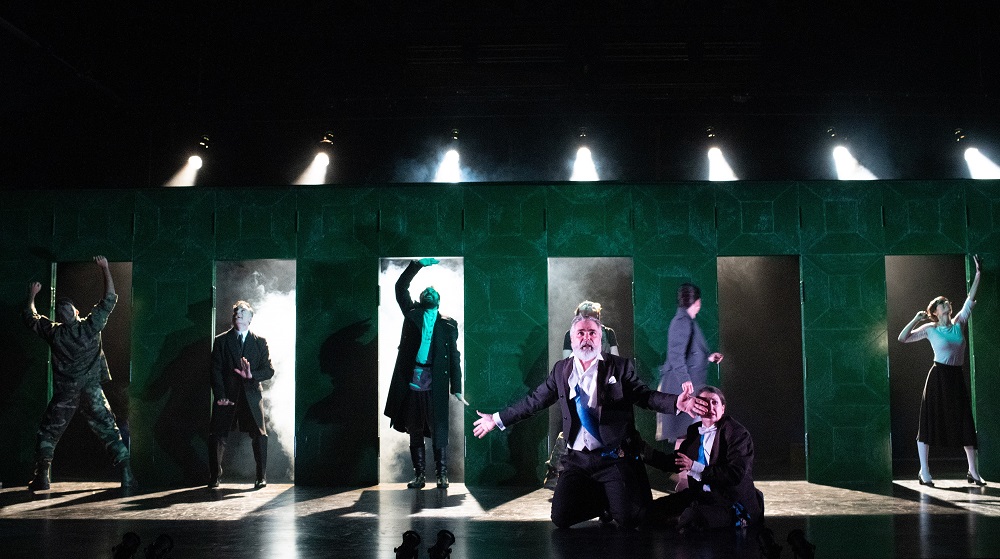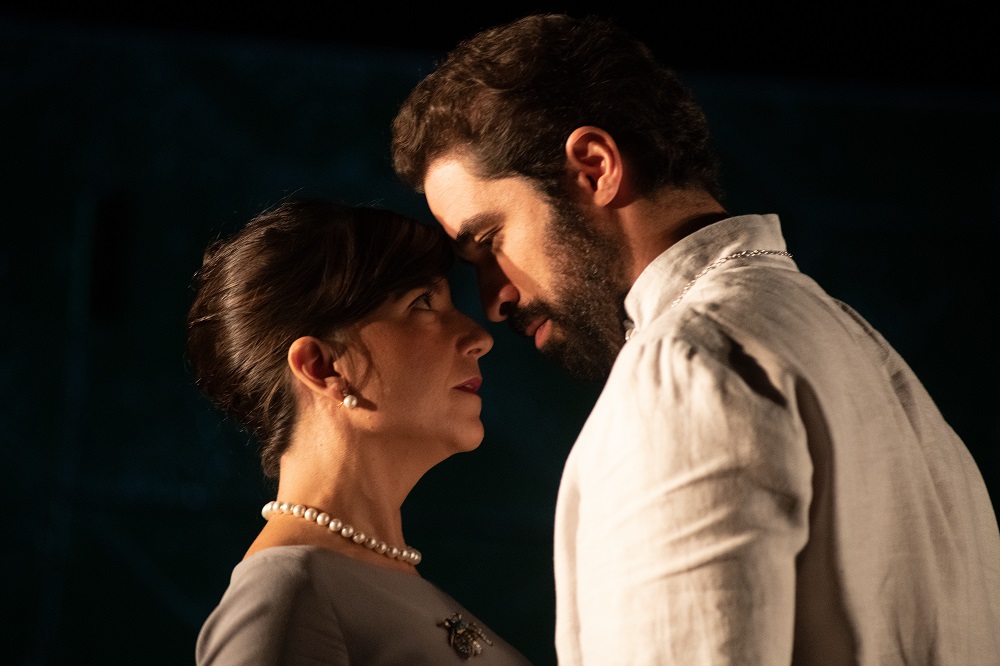Dream versus reality, fate and free will, love and death, nature versus nurture: they’re all here in Calderón de la Barca’ s ever-startling baroque panopticon, a play so precociously meta that every theatrical game from Pirandello onwards deserves the epithet “Calderonian”. Declan Donnellan and Nick Ormerod heighten the Spaniard's play-within-a-play quality by framing it as the fantasy of half-awake, stargazing ruler Basilio, bringing long-term experience to provide an extra layer of roller-coaster ride between farce and potential tragedy.
Back in 1999, a then not so world-famous Calixto Bieito directed a company of British actors, also at the Barbican, in the same play; but there’s no sense of déjà vu here with the opposite teaming (Spanish actors, British director)– and how good it is to hear Calderón’s text declaimed in Spanish (with English surtitles, of course), those rolling “r”s making the nature imagery almost tangible.  Early problems with projection, eventually overcome – as the Barbican doesn’t believe in printed, or in this case online, programmes, and I overlooked an instruction to pick up a handout at the box office, I have no idea in what kind of venue this production was launched – are offset by the visual strangeness and a deliberately jarring musical collage out of which a banal but catchy pop song comes to dominate: an initial plunge in complete darkness before Basilio‘s nightmares begin against a malachite wall with flapping doors - haunting design by Ormerod from the start (pictured above) - and a supposed monster is born.
Early problems with projection, eventually overcome – as the Barbican doesn’t believe in printed, or in this case online, programmes, and I overlooked an instruction to pick up a handout at the box office, I have no idea in what kind of venue this production was launched – are offset by the visual strangeness and a deliberately jarring musical collage out of which a banal but catchy pop song comes to dominate: an initial plunge in complete darkness before Basilio‘s nightmares begin against a malachite wall with flapping doors - haunting design by Ormerod from the start (pictured above) - and a supposed monster is born.
As in Greek tragedy, a king’s attempt to suppress the coming-to-light of a potential danger to the kingdom in the shape of his supposedly ill-starred son is doomed to failure; but Calderón’s enlightenment shows us that chained Segismundo, released from his dark tower to be tried out at court, only fulfils low expectations because of the way he’s treated and, given the right chance, can overcome the superstitious blight upon him. It’s a daunting challenge for any actor, and while one might wish that Alfredo Noval had more of a lion’s roar to terrify us vocally, physically he captures the unpredictability with huge charisma. The central aisle opened up in what is usually a wall of seats from one side of the Barbican stalls to the other encourages unpredictable play with the audience – just short of transgressive, but it helps to keep us anxious about what Segismondo will do next.  There’s vocal prowess from Irene Serrano and Manuel Moya as the niece and nephew who should unite to share the throne (pictured above), Rebeca Matellán rises to eloquent heights after an ill-defined start as the vengeance-seeking Rosaura, and good company work flares as Donnellan asks his actors to switch their styles back and forth between high courtly dialogue and sitcom farce; only the climactic civil war sequence lacks the necessary directorial punch. And we need more from Goizalde Núñez as the servant Clarín, though the point is well made here that while the aristocracy gets everything packaged up nicely by a much-changed Sigismondo, the ordinary folk end up being the casualties: the necessary kick in the reconciliation scene. This is classic drama imaginatively done, a rather rare thing in London at the moment; catch it if you can.
There’s vocal prowess from Irene Serrano and Manuel Moya as the niece and nephew who should unite to share the throne (pictured above), Rebeca Matellán rises to eloquent heights after an ill-defined start as the vengeance-seeking Rosaura, and good company work flares as Donnellan asks his actors to switch their styles back and forth between high courtly dialogue and sitcom farce; only the climactic civil war sequence lacks the necessary directorial punch. And we need more from Goizalde Núñez as the servant Clarín, though the point is well made here that while the aristocracy gets everything packaged up nicely by a much-changed Sigismondo, the ordinary folk end up being the casualties: the necessary kick in the reconciliation scene. This is classic drama imaginatively done, a rather rare thing in London at the moment; catch it if you can.















Add comment